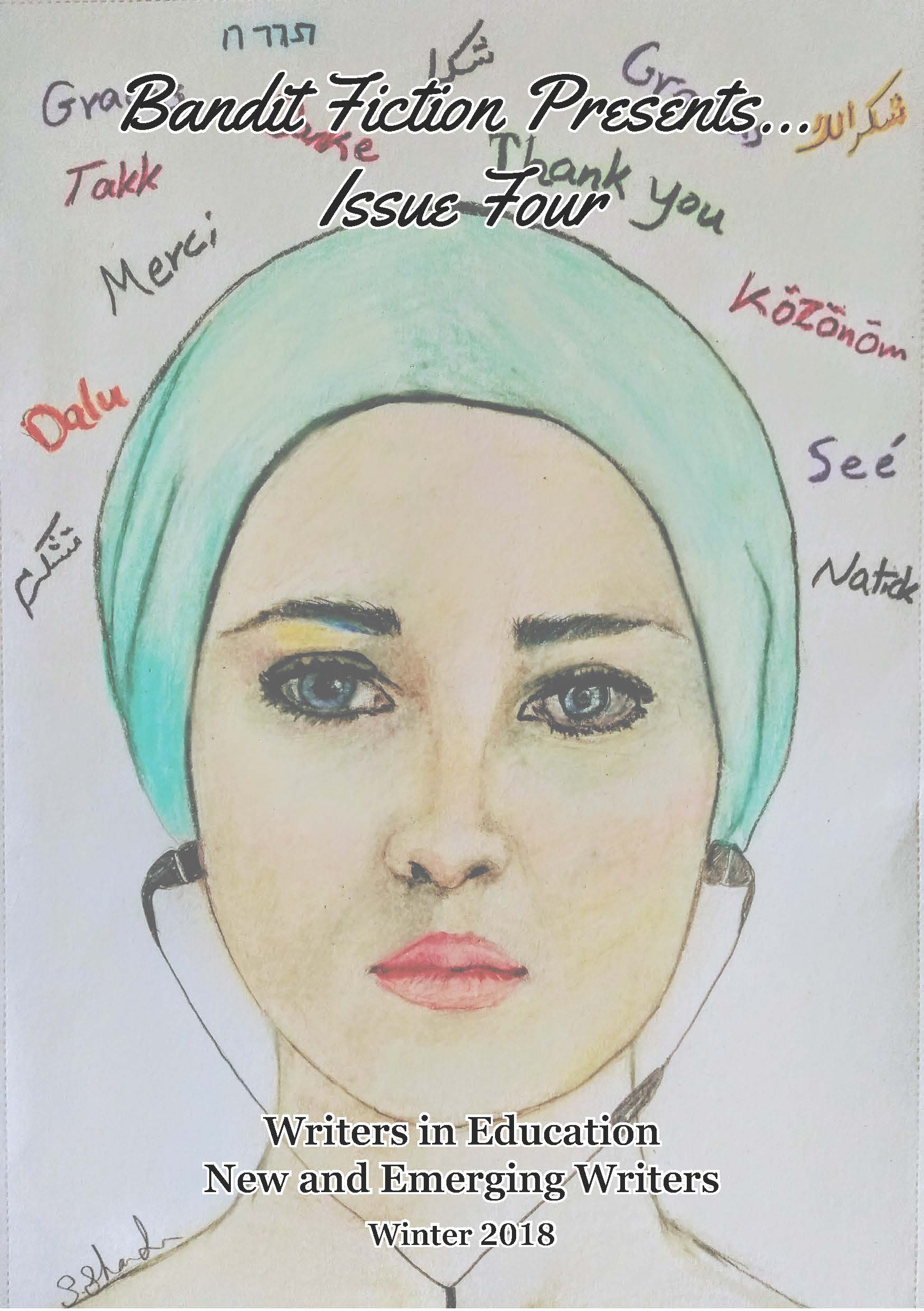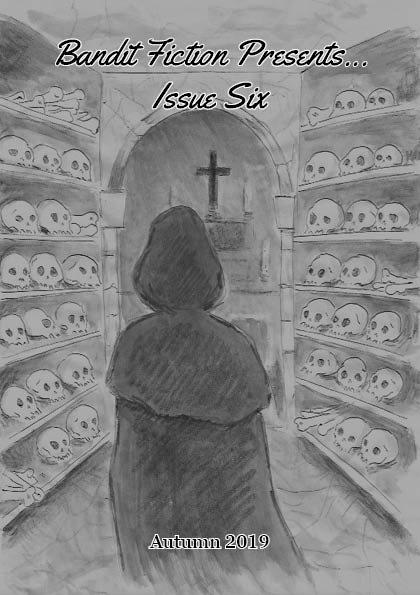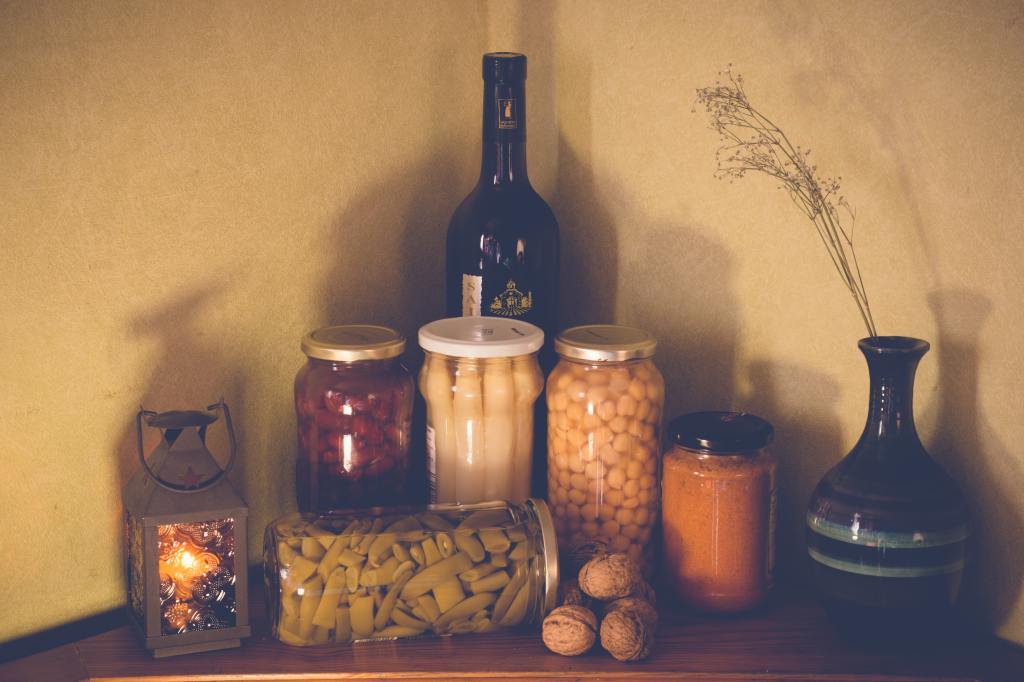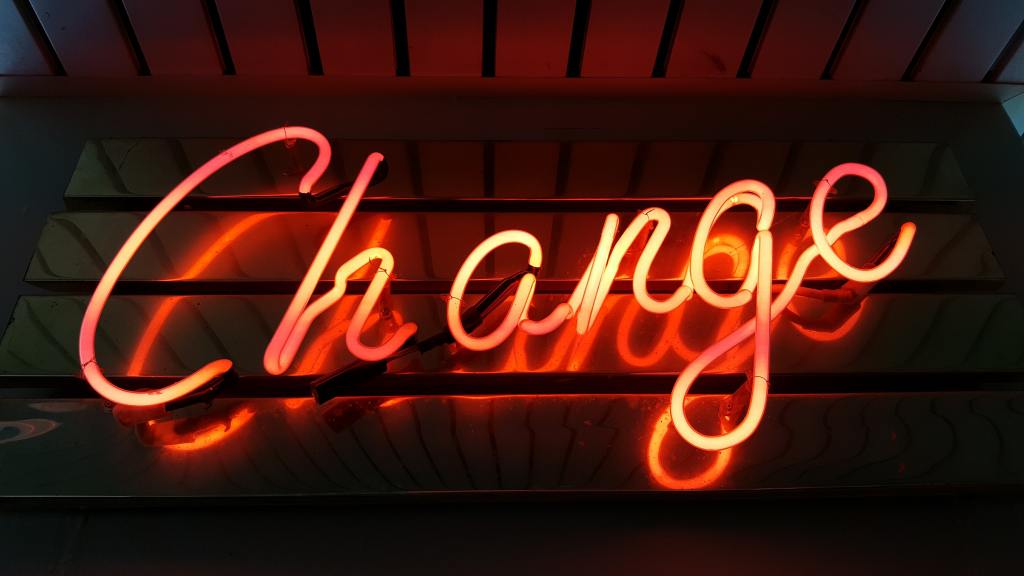
Whenever my cousin Mark was standing next to someone in public, at the bus stop, in a queue at the post office or supermarket, or in the pub, he would turn to them and start talking, as if they were old friends.
Mark’s choice of subjects were narrow: his own lack of a job, his mysterious health problems that no doctor could diagnose, his theories on why people were bad and could not be trusted, or what his mother used to say when she was alive, which explained why he could not get a job, why all doctors were quacks and why people were bad, and could not be trusted.
Many of those who he approached were a little surprised, and others wondered if they knew him but had forgotten, but as his dry, slow monotone detailed no more than his personal misfortunes, some humoured him for a short period then made an exit at the first opportunity, while others ignored him or told him to shut up. When he started talking about himself to random customers in a pub, it wasn’t rare that this would really piss them off, and someone would punch him in the face. This happened so often when he was out drinking, that his nose was broken in three places, and he was barred from half the pubs in town.
These situations made Mark believe the whole world was against him. Some would call this paranoia.
But the problem was: everyone was against him. This was not his delusion. He could not change, and so people would not change their reaction to him. This was unfair. He had issues. We had issues. But it was what it was.
The last time I saw Mark was when he asked me to come round to his flat and unblock a drain. He hated plumbers, as he believed they were too expensive and never solved problems, only created more, so they could be hired again at further cost. But this meant that whenever his drain was blocked he needed someone to fix it. So he called around his relatives until one of us said yes.
As I unscrewed a pipe from below the sink and pulled out a knot of clogged hair, ground coffee and potato peel, he told me of his latest plan: he was going on a trip to a small caucasian republic called Kirkazstan.
I thought he was joking. Whenever he was angry or frustrated with life, he announced that he was about to fly to Japan, Barcelona or Rio, that he had bought the ticket, and he was not coming back. I believed he was just making these threats to see my response, and was expecting me to tell him how his friends and family needed him here so he must stay. But I said nothing. I was glad I said nothing. If I had said anything, he would have known I was insincere, which would have made him even more paranoid.
I thought nothing of Mark’s plan until months went by, during which time he did not contact me. Surprised at his silence, I asked our mutual acquaintances, his sister and our other cousins, but no one had heard anything from him.
Trying to remember the country he spoke about, I googled my understanding of its name a few times, and the search engine suggested different Central Asian republics, but none were exactly right. Eventually I found a site about ‘Kirkazstan’, and this spelling seemed to fit. Other pages about this so-called ‘country’ contained closely-leaded writing, and poor quality scans from library books. On message boards, there was disagreement over whether its precise location was the border between Iran and Azerbaijan, the north side of the Caucasus mountains, or closer to Crimea on the Black Sea coast. Here, I could find no accounts of its people or its customs, or pictures of its architecture or landscape. No experts had any idea about the name of its capital, knew of the origin of its people, or could clarify if it was ever part of the USSR.
Most of the references came from over 150 years ago. In the 19th Century, wealthy explorers from Imperial Russia, France and Great Britain declared they were travelling to Kirkazstan. A minor Muscovite writer detailed a rumour that this was a place where people went to kill themselves. It was better for victims to do this far from home, as it would cause less distress to their relatives. Suicide itself was so shameful, that if a nobleman stated he was “embarking on an exploration of Kirkazstan”, it was a dignified euphemism for the act.
Debunking this myth was a narrative by a French explorer, Pierre-Louis Toulouse, who was pondering on what he expected to encounter in the country. Toulouse surmised that if ten people contemplating suicide were to gather in a tavern in Kirkazstan, they would discover not only much in common, but also many reasons not to cut short their lives. However Toulouse himself vanished a few months after writing this, and the route before his disappearance is unknown.
None of this made it clear to me how someone as unhinged as Mark would be able to find out where the damned place was.
After six months without anyone I knew hearing from him, I received a judge’s approval to enter his flat. This was a small, one bedroom apartment in a ten-storey block from the 1970s, with a tiny kitchenette. The plates and cutlery were put away in the drawers, it was clean and there was no smell, but it had changed since I last came to fix the sink.
On the wall was a giant map of the Black Sea and Caspian Sea regions, and the stretch of land between the two was riddled with drawing pins, each one leading to pictures of churches, apartment blocks, cemeteries, cottages and mausoleums. Scattered on the floor were vintage books on esoterica, some borrowed from university libraries. Print-outs of obscure web pages were piled up, many Google-translated from Russian, Farsi, Georgian, Turkish and Arabic, alongside naive drawings of peasants dancing in folk costume.
A leather-bound book with a broken spine, its edges frayed, was open on his desk, where a sentence was underlined in red:
“Only when you accept there will be no way back for you from Kirkazstan, will the path to the country be open to you.”
I felt pride in my cousin. It appeared he had set himself a target, and had seen it through to the end. It was something none of the family had helped him with, and he had achieved this on his own.
But if I ever saw him again, I would take back this praise.
About The Author
Michael Bird is a writer and long-form journalist based between Bucharest and London, looking to experiment with form, content and media, and the boundaries between fiction and non-fiction. Previous published short stories include The Calling (Grist, ‘Trouble’ Anthology, 2019), second prize for These Walls of Me (TheShortStory.Net competition, 2018), The Two Tones of the Plait and England Doesn’t Want You in the Bristol Short Story Prize Anthologies, and Fallout in Storgy’s Exit Earth Anthology. As a journalist, he has investigated American financing of anti-abortion movements in Europe, corruption in sports in the Balkans, fake news by the British media, the scourge of HIV in Europe, and home-made killer drugs in Ukraine and Georgia. Most recently his work has appeared in Vice in Romania, and, previously in The Independent on Sunday, Mediapart, Politico, EU Observer and Business Insider. He has reported live on Romanian protests for Deutsche Welle TV, contributes as a guest correspondent to BBC Radio 5 ‘Up All Night’, and has been an expert interviewee for Dutch TV documentary ‘Zembla’ on Donald Trump’s relationship with Kazakh oligarchs.
Bandit Fiction is an entirely not-for-profit organisation ran by passionate volunteers. We do our best to keep costs low, but we rely on the support of our readers and followers to be able to do what we do. The best way to support us is by purchasing one of our back issues. All issues are ‘pay what you want’, and all money goes directly towards paying operational costs.






















Leave a reply to The Brothers Karamazov in Eight Memes – Bandit Fiction Cancel reply